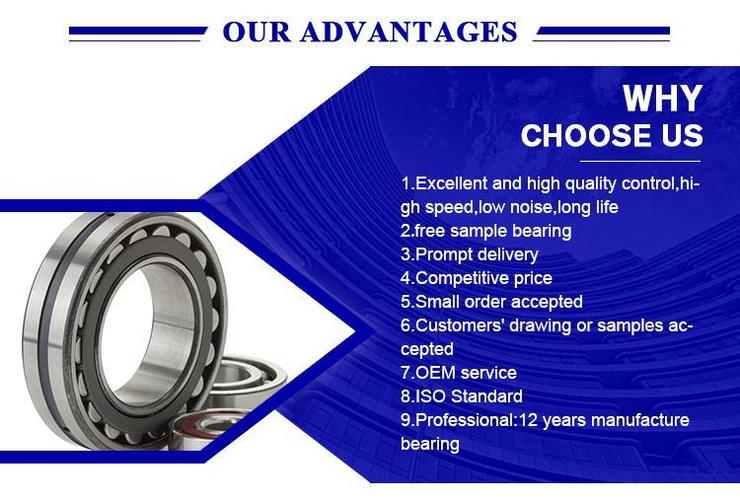Top 5 Industrial Bearings Suppliers: How to Choose the Best for Your Needs
Industrial bearings suppliers play a critical role in ensuring smooth operations across industries like manufacturing, automotive, and aerospace. These suppliers provide high-quality bearings that reduce friction, enhance efficiency, and extend machinery lifespan. Choosing the right supplier ensures access to durable products, technical support, and competitive pricing.
1. industrial bearings suppliers near me2. top industrial bearing manufacturers
3. how to choose industrial bearings
4. industrial bearings price list
5. types of industrial bearings
1. Industrial Bearings Suppliers Near Me

Finding reliable industrial bearings suppliers near your location offers advantages like faster delivery, reduced shipping costs, and easier communication. Local suppliers often provide personalized service, allowing you to inspect products beforehand or request custom solutions. Start by researching suppliers with certifications like ISO 9001, which guarantees quality management systems. Check reviews on platforms like Google My Business or industry forums to assess reliability. Additionally, inquire about their inventory range—whether they stock common bearings (e.g., ball bearings, roller bearings) or specialize in niche products. Establishing a relationship with a local supplier can lead to long-term benefits, including priority support during emergencies.
2. Top Industrial Bearing Manufacturers
The top industrial bearing manufacturers, such as SKF, NSK, and Timken, dominate the global market due to their innovation and reliability. SKF, for instance, offers advanced solutions like self-lubricating bearings for extreme environments. NSK excels in precision bearings for robotics and medical equipment, while Timken specializes in tapered roller bearings for heavy machinery. When evaluating manufacturers, consider their R&D investments, product warranties, and compliance with international standards. Partnering with established brands ensures access to technical documentation, replacement parts, and global distribution networks. However, smaller manufacturers may offer cost-effective alternatives for non-specialized applications.
3. How to Choose Industrial Bearings
Selecting the right industrial bearings involves analyzing load capacity, rotational speed, and environmental conditions. For high-load applications, opt for roller bearings, while ball bearings suit high-speed operations. Consider material choices—stainless steel bearings resist corrosion in humid environments, whereas ceramic hybrids reduce weight and heat. Consult supplier catalogs or use online tools to match specifications with your machinery requirements. Always verify lubrication options: sealed bearings require less maintenance, while open designs allow custom greasing. Testing prototypes under real-world conditions can prevent premature failures. Partnering with knowledgeable suppliers ensures tailored recommendations and avoids costly mismatches.
4. Industrial Bearings Price List
Industrial bearings prices vary based on type, material, and order volume. Ball bearings typically cost between $10 and $200, while large tapered roller bearings can exceed $1,000. Request quotes from multiple suppliers to compare bulk discounts and shipping terms. Online platforms like Alibaba or Thomasnet provide transparent pricing for standard bearings, but custom designs may require negotiated contracts. Factor in lifecycle costs—cheaper bearings may save upfront but incur higher maintenance expenses. Seasonal demand fluctuations, such as increased orders during manufacturing peaks, can also affect pricing. Discuss long-term procurement strategies with suppliers to lock in rates and ensure supply chain stability.
5. Types of Industrial Bearings
Common industrial bearing types include ball bearings, roller bearings, needle bearings, and plain bearings. Ball bearings handle radial and axial loads with minimal friction, ideal for electric motors. Roller bearings, including cylindrical and spherical variants, support heavier loads in conveyor systems. Needle bearings, with their slim profiles, fit compact spaces in automotive transmissions. Plain bearings (bushings) are used in low-speed, high-load scenarios like hydraulic cylinders. Specialty bearings, such as magnetic or ceramic hybrids, address unique challenges like high temperatures or corrosive environments. Understanding these types helps in selecting the optimal bearing for your application, improving machinery performance and longevity.
Navigating the world of industrial bearings suppliers involves balancing cost, quality, and technical requirements. Whether sourcing locally or globally, prioritizing certified suppliers ensures product reliability. From understanding pricing trends to selecting the right bearing type, each decision impacts operational efficiency. This guide covers essential aspects—evaluating manufacturers, comparing prices, and matching bearings to applications—to help you make informed choices. Continue reading to explore detailed strategies for optimizing your bearing procurement process.
Choosing the right industrial bearings supplier is crucial for maintaining seamless operations and minimizing downtime. By evaluating certifications, pricing, and product ranges, businesses can secure high-quality components that align with their technical needs. This guide provides actionable insights to streamline supplier selection, enhance machinery performance, and achieve long-term cost savings.




 13869596835
13869596835